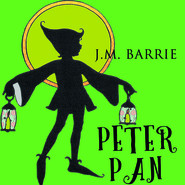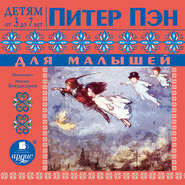По всем вопросам обращайтесь на: info@litportal.ru
(©) 2003-2024.
✖
A Widow's Tale, and Other Stories
Настройки чтения
Размер шрифта
Высота строк
Поля
"Perhaps," the mother said, "we shall find him here, ready to laugh at us for this ridiculous expedition."
"Well, I hope not," said Horace, "for he will be angry. Papa doesn't like to be looked after."
This speech chilled Mrs Lycett-Landon a little, for it was quite true; and for her part she was not a woman who liked to be found fault with on account of silly curiosity. As a matter of fact, few women do. So that it was with a little check to their eagerness that they got out at the office door among all the press of people coming to their daily labour. Horace, though he had been intended to work there, scarcely knew the place; and his mother, though she had driven down three or four times to pick up her husband on the occasions when they were in town together, was but little better acquainted with it. And the clerks did not at all recognise these very unlikely visitors. Ladies appeared very seldom at the office, and at this early hour never.
"Your father, of course, would not be here so early," Mrs Lycett-Landon said as they went up-stairs; "and I don't suppose young Mr Fareham either is the sort of person – but we must ask for Mr Fareham."
Remembering all that her husband had said, she did not in the least expect to find that young representative of the house. How curious it was to wait until she had been inspected by the clerk, to be asked who she was, to be requested to take a seat, till it was known if Mr Fareham was disengaged! An impulse which she could scarcely explain restrained her from giving her name, which would at once have gained her all the respect she could have desired; and for the first time in her life Mrs Lycett-Landon realised what it must be to come as a poor petitioner to such a place. The clerks made their observations on her and her son behind their glass screen. They decided that she must want a place in the office for the young fellow, but that Fareham would soon give her her answer. These young men did not think much of the personal appearance of Horace, who was clearly from the country – a lanky youth whom it would be difficult to make anything of. Their consternation was extreme when young Mr Fareham, coming out somewhat superciliously to see who wanted him, exclaimed suddenly, "Mrs Landon!" and went forward holding out his hands. "If I had known it was you!" he said. "I hope I have not kept you waiting. But some mistake must have been made, for I was not told your name."
"It was no mistake," she said, looking graciously at the young clerk, who stood by very nervous and abashed. "I did not give my name. We shall not detain you a moment, we only want an address."
While she spoke she had time to remark the perfectly correct and orthodox appearance of young Fareham, of whom it was almost impossible to believe that he had ever committed an irregularity of any description in the course of his life. He led the way into his room with all the respect which was due to the wife of the chief partner, and gave her a chair. "My time is entirely at your service," he said; "too glad to be able to be of any use."
Mrs Lycett-Landon sat down, and then there ensued a moment of such embarrassment as perhaps in all her life she had never known before. There was a certain surprise in the air with which he regarded her, and not the slightest appearance of any idea what she could possibly want him for at this time in the morning. And somehow this surprised unconsciousness on his part brought the most curious painful consciousness to her. She was silent; she looked at him with a kind of blank appeal. She half rose again to go away without putting her question. She seemed to be on the eve of a betrayal, of a family exposure. How foolish it was! She looked at Horace's easy-minded, tranquil countenance, and took courage.
"Do you expect," she said, "Mr Landon here to-day?" with a smile, yet a catch of her breath.
"Mr Landon!" The astonishment of young Fareham was extreme. "Is he in town? We have not seen him since May."
"Horace," said Mrs Lycett-Landon, half-rising from her chair and then falling back upon it. "Horace, your father must be very ill. He must have had – some operation – he must have thought I would be over-anxious – "
She became very pale as she uttered these broken words, and looked as if she were going to faint; and Horace, too, stared with bewildered eyes. Young Fareham began to be alarmed. He saw that his quick response was altogether unexpected, and that there was evidently some mystery.
"Let me see," he said, appearing to ponder, "perhaps I am making a mistake. Yes, I am sure he was here in May – he had just come back from the Continent. Wasn't it so? Oh, then, I must have misunderstood him. I thought he said – Now I remember, he certainly was here in town. Yes, came to tell me something about letters – what was it?"
"Perhaps where you were to send his letters," Mrs Landon said quickly. "That is what we want to know." While she was listening to him, her mind had been going through a great many questions, and she had brought herself summarily back to calm. If it should be serious illness, all her strength would be wanted. She must not waste her forces with foolish fainting or giving in, but husband them all.
Then there arose an inquiry in the office. One clerk after another was called in to be questioned. One said Mr Lycett-Landon's letters were all forwarded to the Liverpool house, or to the Elms, Rockferry, his private address; another, that they were sent to the club; and it was not till some time had been lost that one of the youngest remembered an address to which he had once been sent, to a lodging where Mr Landon was staying. He remembered all about it, for it was a pretty house, with a garden, very unlike Jermyn Street.
"It was just after Mr Landon came back from abroad," the youth said; and by degrees he remembered exactly where it was, and brought it written down, in a neat, clerkly hand, on an office envelope. It was a flowery address, a villa in a road, both of them fanciful with a cockney sentiment.
Mrs Lycett-Landon took the paper from him with a smile of thanks; but she was so bewildered and confused that she rose up and went out of the office without even saying good-morning to young Fareham.
"Mamma, mamma," cried Horace after her, "you have never said – "
"Oh, don't trouble her," said young Fareham; "I can see she is anxious. You'll come back, won't you, and let me know if you've found him? But I hope there is some mistake."
He did not say what kind of mistake he hoped for, nor did Horace say anything as he followed his mother. He, like Milly, thought it impossible that papa would have hidden himself thus to be ill. He was a little nervous of speaking to his mother when he saw how pale and preoccupied she looked.
"Shall I call a cab?" he said. "Mother, do you really think there is so much to fear?"
"He has never been on the Continent," was all his mother could say.
"No; that's true. They just have got that into their heads. It was no business of theirs where he went."
"It is everybody's business where a man goes – a man like him. I think I know what it is, Horace. He has been fretful for some time, and restless; he must have been ill, and he has been going through an operation. Don't say anything; I feel sure of it. Perhaps there was danger in it, and he feared the fuss, and that I should be over-anxious."
"We always thought as children that papa liked to be made a fuss with," said simple Horace.
"You thought so in the nursery, because you liked it yourselves. Yes, we had better have a cab. How full the streets are! one cannot hear oneself talking."
Then she was silent a little till the hansom was called. It was a very noisy part of the City, where the traffic is continual, and it was very difficult to hear a woman's voice. She paused before she got into the cab.
"Now I think of it," she said, "you had better go and telegraph to Milly, for she will be anxious. Go back to the hotel and do it. Tell her that we have got to town all safe, and that you will send her word this evening how papa is."
"But, mother, you are not going without me! and it will be better to telegraph after we know."
"That is what I wish you to do, Horace. It might upset him. I think it a great deal better for me to go by myself. Just do what I tell you. Milly will want to know that we have arrived all right; and wait at the hotel till I send for you."
"You had much better let me come with you, mother."
The noise was so great that she only made a "No" with her mouth, shaking her head as she got into the cab, and gave him the address to show the cabman. Then, before Horace had awakened from his surprise, she was gone, and he was left, feeling very solitary, pushed about by all the passers-by upon the pavement. The youth was half angry, half astonished. To go back to the hotel was not a thing that tempted him, but he was so young that he obeyed by instinct, meaning to pour forth his indignation to Milly. Even in a telegram there is a possibility of easing one's heart.
CHAPTER V.
THE HOUSE WITH THE FLOWERY NAME
Mrs Lycett-Landon drove off through the crowded City streets in a curious trace of excited feeling. She had a sense that something was going to happen to her; but how this was she could not have told. Nor could she have told why it was she had sent Horace away. Perhaps his father might not wish to see him, perhaps he might prefer to explain to her alone the cause of his absence. She felt the need of first seeing her husband alone, though she could not tell why. It was a very long drive. Out of the bustling City streets she came to streets more showy, less encumbered, though perhaps scarcely less crowded, and then to some which showed the lateness of the season by shut-up houses and diminished movement, and then to line after line of those dingy streets, all exactly like each other, which form the bulk of London. There are so many of them, and they are so indistinguishable. She looked out of the hansom and noted them all as she drove on – but yet as if she noted them not, as if it were they that glided by her, as in a dream. Then she reached the suburbs, the roads with the flowery names, houses buried in gardens, with trees appearing behind the high enclosing walls. This perhaps was the strangest of all. She could not think what he could want here, so far out of the world, until she recalled to herself the idea of an illness and an operation which had already faded out of her mind – for that, like every other explanation, was so strange, so much unlike all his habits. Her heart began to beat as the cab turned into the street, going slowly along to look for the special house, and she found herself on the point of arriving at her destination. Though she was so anxious to find her husband, she would now, if she could, have deferred the arrival, have called out to the driver that it was not here, and bidden him go on and on. But there could not be any mistake about it – there was the name of the house painted on the gate. It was a little gate in a wall, affording a glimpse of a pretty little garden shaded with trees inside. She would not let the cabman ring the bell, but got out first and paid him, and then, when she could not find any further excuse, rang it – so faintly at first that no sound followed. She waited, though she knew she could not have been heard, to leave time for an answer. Looking in under the little arch of roses to the smooth bit of lawn, the flowers in the borders, she said to herself that there was not very much taste displayed in the flowers – red geraniums and mignonette, the things that everybody had, and great yellow nasturtiums clustering behind – not very much taste or individuality, but yet a great deal of brightness, and the look as of a home; not lodgings, but a place where people lived. There were some garden-chairs about, and on a rustic table something that looked like a woman's work. How natural it all seemed, how peaceable! It was curious that he should be living in such a place. Perhaps, she said to herself, it was the house of some clerk of the better sort – some one who had known him in his early years, and had wished to be kind: and in good air, and out of the noise of the streets. She made all these explanations as she stood at the door waiting for some one to answer a ring which she knew very well could not have been heard – unable to understand her own strange pause, and the manner in which she dallied with her anxiety. But this could not last for ever. After she had waited more than the needful time she rang again, and presently the door was opened by an unseen spring, and she went in within the pretty enclosure. How pretty it was – only red geraniums and nasturtiums, it was true, but the soft odour of the mignonette, and the sunshine, and the silence – all so peaceful and so calm. There came over her a certain awe as she stepped across the threshold and closed behind her the garden-door. The windows were all open, the house-door open. Under the trees on the little lawn were two basket-chairs, and a white heap of muslin, which some woman must have been working at, on the table. Mrs Lycett-Landon felt like an intruder in this peaceful place. She said to herself at last that there must be some mistake, that it could not be here.
A housemaid, wiping her arms on her apron, came to the house-door – a round-faced, ruddy, wholesome young woman, just the sort of servant for such a place. No doubt there were two, cook and housemaid, the visitor said to herself, just enough for needful service. The young woman was smiling and pleasant, no forbidding guardian. She did not advance to meet the stranger, but stood waiting, holding her own place in the doorway. Her honest, open face confirmed the expression of peace and comfort that was about the house. The intruder came up softly, not able to divest herself of that sense of awe.
"Does Mr Lycett-Landon live here?" she said, almost under her breath.
"Yes, ma'am, but he's rather poorly this morning," the housemaid said.
"He is at home then? Will you take me to him, please – "
"Oh, I don't think I can do that, ma'am. He's rather poorly; he's keeping his room. The doctor don't think that it's anything serious, but as master is not quite a young gentleman he says it's best to be on the safe side."
"Is Mr Lycett-Landon your master?"
"Yes, ma'am," with a little curtsey.
"Has he been ill long?"
"Oh, bless you, not at all. He has his 'ealth as well as could be wished; only a little bilious or that now and then, as gentlemen will be. They ain't so careful in what they eat and drink as ladies – that's what I always say."
"He is only bilious then – not ill? not long ill? there has been no – operation?"
"Oh, bless you, nothing of the sort!" the young woman said, with the most evident astonishment.
Mrs Lycett-Landon put all these questions in a kind of dream. Something kept her from saying who she was. She felt a curious anxiety to find out all the details before she announced herself.
"I think he will see me," she said, a little faintly. "I have come a long way to see him. Take me to him, please."
"Is it business, ma'am?" said the girl.
"Business? yes; you may say it is business. I am his – Take me to him at once, please."

















